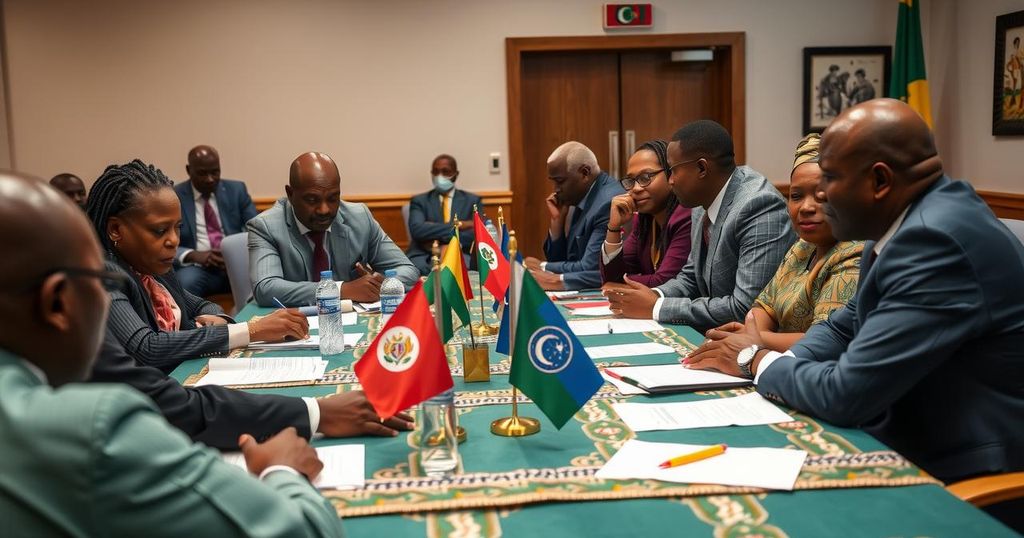Leaders from Egypt, Eritrea, and Somalia gathered in Asmara to strengthen regional security ties amid rising tensions in the Horn of Africa, notably due to the Sudan conflict and Ethiopia-Somaliland maritime deal. The absence of Ethiopian leadership highlighted shifting alliances, with the three countries pledging increased cooperation to address various internal and external challenges, particularly in Somalia.
In an unprecedented summit held in Asmara, leaders from Egypt, Eritrea, and Somalia convened to discuss strengthening regional security amidst rising tensions in the Horn of Africa. The meeting’s backdrop included concerns over ongoing conflicts in Sudan and the controversial Ethiopia-Somaliland deal, alongside threats posed by Houthi rebels in the Red Sea. With Ethiopia notably absent from the discussions, the summit underscored a new alliance among these three nations, particularly highlighting Somalia’s growing relationship with Egypt following deteriorating ties with Ethiopia.
Eritrean President Isaias Afwerki convened the summit, attended by Egyptian President Abdel Fattah al-Sisi and Somalia’s Hassan Sheikh Mohamud. The leaders emphasized their commitment to enhancing cooperation to stabilize the region, affirming the necessity of respecting national sovereignty within Horn of Africa countries. There was a particular focus on dealing with external influences and security challenges, especially in Somalia, where both regional and internal adversities demand a united front.
Agreements reached at the summit included the establishment of a committee to promote strategic cooperation, addressing various crises including the situation in Sudan. This summit also marked a historic visit, being President Sisi’s first trip to Eritrea since the early 1990s when Hosni Mubarak was in office. The recent fallout from Ethiopia’s agreement with Somaliland has aggravated tensions, spurring Somalia to deepen military ties with Cairo against terrorism and share mutual security interests.
The regional dynamics outlined by this summit reflect decades of complex relationships, particularly between Eritrea, Ethiopia, and Somalia, and spotlight Egypt’s enhancing role in the region’s political landscape as it seeks allies in response to concerns over Ethiopia’s ambitions regarding the Nile River and maritime rights in the Red Sea. This alliance, although nascent, could reshape power relations in a highly volatile region.
The Horn of Africa is characterized by longstanding tensions and conflicts, notably exacerbated by the recent civil war in Sudan, territorial disputes, and regional rivalries involving Ethiopia, Eritrea, and Somalia. The presence of groups like the Houthi rebels in the Red Sea and internal challenges within Somalia have further complicated the security landscape. The diplomatic maneuvers by Egypt, Eritrea, and Somalia aim to forge a united front against these mounting challenges and create stability in a region that has historically experienced strife and instability. Understanding the implications of the Ethiopia-Somaliland maritime agreement is critical, as it has heightened Somalia’s concerns over sovereignty and potential military implications for the region.
The summit in Asmara signifies a pivotal moment for Egypt, Eritrea, and Somalia as they strive to redefine their roles and relationships amidst escalating tensions in the Horn of Africa. By reinforcing their commitments to regional sovereignty and security, these nations aim to counter external influences and enhance their collaborative efforts against terrorism and other internal challenges. The evolving dynamics, particularly following Somalia’s military agreement with Egypt, point towards an emerging geopolitical alliance that could alter the power balance in the region.
Original Source: www.barrons.com






